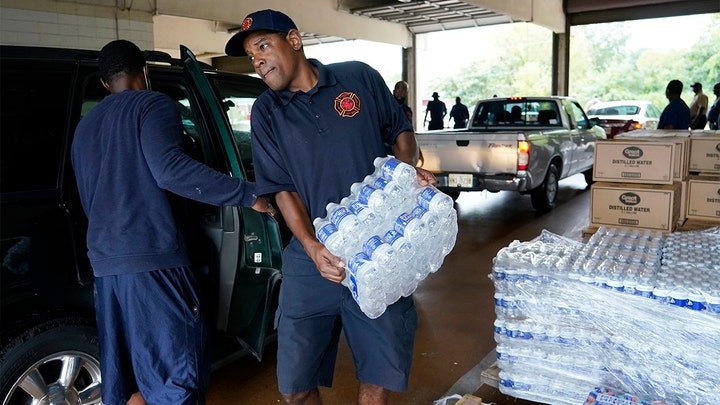The Water Crisis in Jackson, Mississippi
Jackson, Mississippi is still without access to clean water for over 180,000 residents since powerful storms flooded the local water treatment plant on August 24th. Additionally, Jackson has been on a boil water notice since July—a result of poor infrastructure development that is characterized as an environmental racism issue. On August 31st, President Biden approved Mississippi’s federal emergency declaration request, allowing aid administered by the Federal Emergency Management Agency (FEMA) to be allocated to the crisis. In the meantime, residents have been on order to use bottled water, despite shortages limiting access to it. The treatment plant has stopped the operations indefinitely, raising questions among residents about when they can expect access to water again.
This crisis highlights key concerns about climate change, specifically concerning disaster preparedness and mitigation as global climate trends begin to drastically change weather patterns, leading to more intense and more frequent flood risk.
Residents initially reported low water pressure following the storm events, with water eventually being cut off to most homes. There were also reports of raw sewage flooding the streets, as well as videos on social media of brown water coming out of residents’ taps. Mississippi Governor Tate Reeves noted that the system had been pumping out relatively cleaner water on and after September 5th, while Jackson Mayor Chokwe Lumumba cautioned that the problem was not entirely resolved, citing estimates of upwards of $2 billion to completely overhaul and fix the system.
These issues, however, were not the beginning of Jackson residents’ water problems. The city had already been on a boil water notice since July 2022 due to extreme cloudiness (called turbidity) in the tap water. The boil water notices are different from the water pressure issues – water can still be received at the endpoint from taps, showers, bathtubs, etc. under boil water notices, but with a lack of water pressure, water does not get through to homes at all.
The crisis brings forward a slew of climate-related issues, the most important of which is environmental racism. Jackson’s residents are a majority Black (82.5%), and the city tends to lean Democrat in a largely Republican-voting state when it comes to politics. Initial investigations into the crisis have found that there have been decades of mismanagement and underinvestment into Jackson’s utilities, leading to poor maintenance and an inability for infrastructure like the water treatment plant to sustain itself during intense weather and flooding events. The underinvestment into these updates has led to a situation where billions of dollars are needed to update the city’s utilities. It also contributed to white flight in the 1980s and 90s, with White residents leaving Jackson for other localities. This shifted funding to those areas, lowering the population and increasing poverty overall in the city—a smaller population means less tax money collected and therefore less money to invest in infrastructure.
Another environmental concern that this event brings up is disaster management, preparation, and mitigation. The National Resources Defense Council (NRDC) has found that FEMA is underfunded to the extent that responses to the higher rate of climate disasters will not be adequate to safeguard lives and property. Agencies like FEMA and the U.S. Army Corps of Engineers are essential actors in emergencies. For instance, they can distribute cases of water when water access is cut off. In the case of Jackson, some residents were spending $200 a week on cases of water.
Access to water is essential to life. However, it is too often the case that communities in the United States still do not have adequate access to it, or stand to lose access. Even worse, these issues largely fall along racial lines, with minority and low-income populations experiencing less access to water more often than their White and affluent counterparts. Only through adequate funding for updating and maintaining water infrastructure, as well as deftly managing crises when they come up, can these communities be safeguarded against these outcomes.

